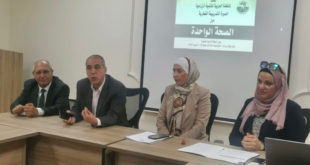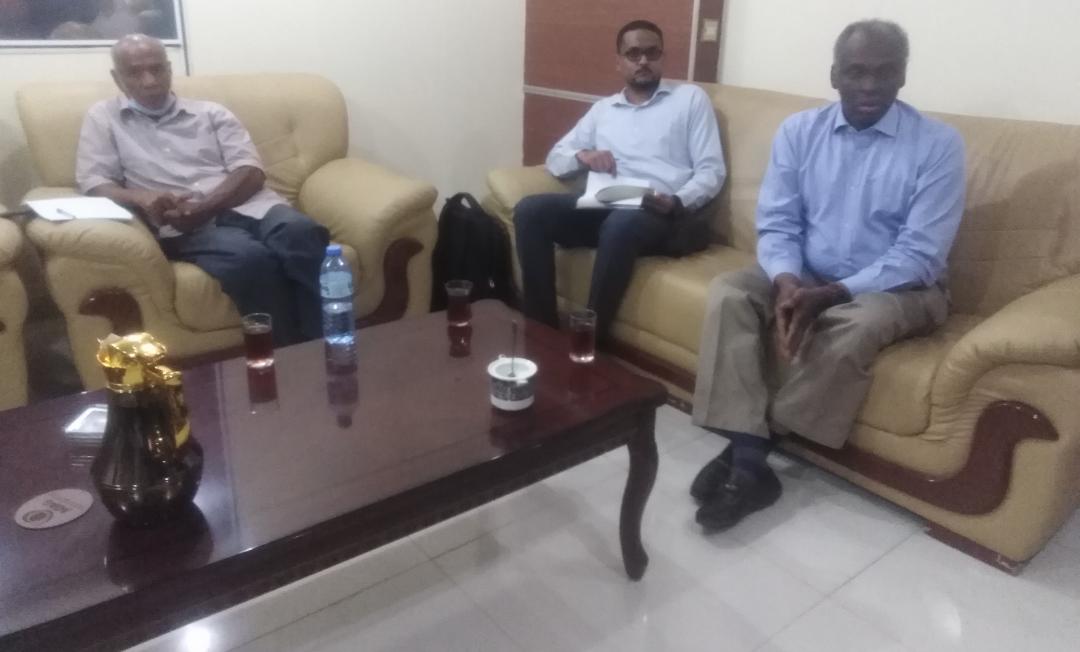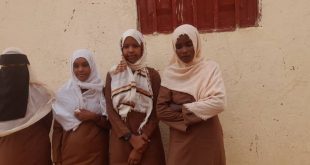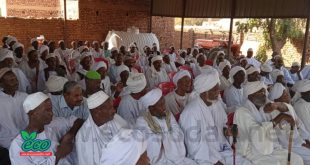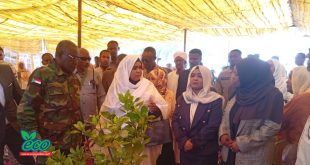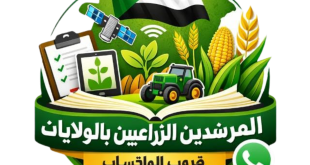Digital technologies have become our constant companions over the last few decades. Thanks to smartphones and laptops, we’ve become more connected to each other than ever before. Devices like these have become even more relevant after the COVID-19 outbreak, helping us stay in touch even in times of physical distance.
Many might assume that these innovations and their benefits are reserved for the world’s most developed countries. In fact, digital technologies such as these are expanding rapidly throughout developing nations – including some of the most fragile – and have proven to be fundamental in the fight against poverty and hunger.
For several years, IFAD-supported projects throughout the Near East and North Africa (NEN) region have incorporated ICT4D (Information and Communication Technology for Development) initiatives in their work to support rural small-scale producers. In the difficult context of the COVID-19 crisis, efforts such as these have become particularly relevant. Here are three examples.
Morocco: An e-marketing initiative helps rural sheep farmers
Just 50 kilometres away from the bustling markets of Marrakech, the rural areas of al-Haouz Province suffer from concerning poverty rates. Here, people depend on agriculture and livestock-rearing to make a living, but these activities are often not remunerative enough to ensure a decent, reliable income.
An IFAD-funded project was launched in 2013 to improve the living conditions in al-Haouz. Among the many innovations it has introduced, the project has established an online marketing platform for livestock called Hawli.Haouz. The platform helps sheep farmers sell their animals more easily within the region – especially for the occasion of Eid al-Adha, during which lamb is consumed as the traditional main course.
The initiative has achieved remarkable results. In 2015, its first year of activity, more than 200 sheep were offered via the platform, generating a turnover of around US$65,000. Over the following two years, the number of sheep sold, and the turnover generated, nearly quintupled.
These results have attracted more and more producers to the platform: as of today, more than 25 breeders’ associations from all over the country now sell their animals on Hawli.Haouz. However, the platform continues to be especially advantageous for small-scale sheep farmers, who often live in isolated areas and are disconnected from large marketplaces.
Egypt: Increasing market access with a new shopping app
The causes of Egypt’s high rates of rural poverty are not that different from those affecting rural small-scale farmers in Morocco. In particular, gaining physical access to markets can be very difficult for the more remote farming communities, who often lack the money, assets and infrastructure to maintain a presence there – but this is exactly where digital technologies can bridge the gap.
The IFAD-funded PRIME project, active in Egypt since 2011, has just developed its own e-marketing platform, called SHARI. Egyptian small-scale farmers will be able to use the platform and its associated mobile app to market their produce online, linking them with both wholesale markets and end consumers. The app will launch in December 2020 and is expected to reach 10,000 to 20,000 users.
Although SHARI is geared toward small-scale producers, end consumers will benefit from using it too. The app allows for comparisons between selected products, helping consumers find the most convenient price. It also learns from the user’s behaviour, displaying suggestions based on previous transactions and search history.
SHARI also helps both farmers and buyers find the most reliable counterparts when making a transaction. Upon completion of a deal, each party evaluates the other on a scale from one to five. These evaluations are averaged to create the user’s “reliability score,” just like the rating systems on other common shopping apps. Search results will automatically display the highest-ranking sellers first, encouraging good-faith transactions.
The online sales circuit has proven to be efficient and profitable for small-scale producers. It has also allowed them to keep selling despite the COVID-19 outbreak, facilitating sales despite events like marketplace closures that would otherwise have been devastating. In some cases, the pandemic has even given rise to new digital tools developed exclusively to deal with its effects.
Jordan: Delivering grants on time via e-wallet apps
Among other heavy socio-economic disruptions the country has recently experienced, Jordan’s lockdown measures have affected the implementation of the IFAD-funded REGEP project, which provides grants for small-scale farmers to invest into their own farming activities. Often, international development aid is the only thing preventing these vulnerable communities from sliding into extreme poverty and food insecurity. In critical scenarios like these – which are only exacerbated by COVID-19 – providing help has only become more imperative.
To maintain timely delivery of grants despite the lockdown, the project began transferring funds to participants via e-wallet applications. With apps like these, funds are loaded directly into each participant’s e-wallet, eliminating the need for a standard bank account. Even under non-emergency circumstances, project participants can benefit from these kinds of initiatives. Participants often face difficulties when opening bank accounts, as they often have little savings and may not be able to reliably reach brick-and-mortar bank branches from the remote areas where they live.
The e-wallet programme was first trialled with 51 participants. Since then, the number of active users has grown to 90 grant recipients across four provinces, who almost unanimously recommend it. In an effort to raise awareness about the benefits of e-wallet applications and other online financial services, REGEP has organized digital skills trainings in partnership with the Jordan Payments & Clearing Company. The first session took place in September 2020.
IFAD has been committed to developing and deploying existing and emerging digital solutions for rural small-scale producers since long before the COVID-19 pandemic. Efforts like our ICT4D investments are part of our mandate to help these producers become more resilient, connecting them to local and regional opportunities that they previously struggled to acces
 ايكوسودان نت التنمية مستقبلنا
ايكوسودان نت التنمية مستقبلنا



